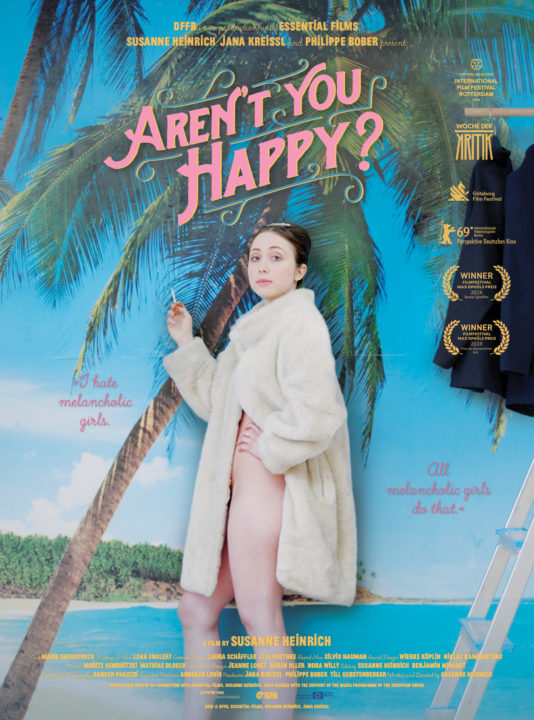Sun Aug 16
All Day
All Day
Queer Cinema from Germany – Rafiki [Online]
film
** This film is only available to viewers in the US. **
Goethe Pop Up Seattle, in partnership with Three Dollar Bill Cinema, Gay City, and NWFF present Queer Cinema from Germany, a virtual film series that serves as an introduction to the multiplicity of stories at the heart of contemporary LGBTQ+ films.
In search of a place to sleep, a melancholy girl roams the big city. On the way she meets young mothers who celebrate their motherhood as a religious revival experience, finds shelter with an abstinent existentialist for whom sex is “just another market,” and waits in a drag bar “for the end of capitalism.” Her attempt to write a book halts at the first sentence of the second chapter, and she finds no place between art galleries, yoga studios, and the beds of strange men. Instead of finding where she fits in, the girl begins to see her depression as a political issue.
In 15 comical encounters, Aren’t You Happy explores our postmodern society between precarity and self-marketing, serial monogamy and neo-spirituality, disillusionment, and the compulsion to be happy. Susanne Heinrich’s debut film is a savvy mélange of pop, feminism, and cheeky humor.
“In the beginning was my discomfort in society […] In a seminar on Queer Theory I came into contact with Karen Michalski’s Alphabet of Feeling Bad, a video work about negative feelings. Seeing this work changed everything. I would probably never have thought of seeing depression not as a fault, illness or individual failure, but rather to politicize it in the context of neoliberal labor and gender relations, for example.” – Susanne Heinrich

